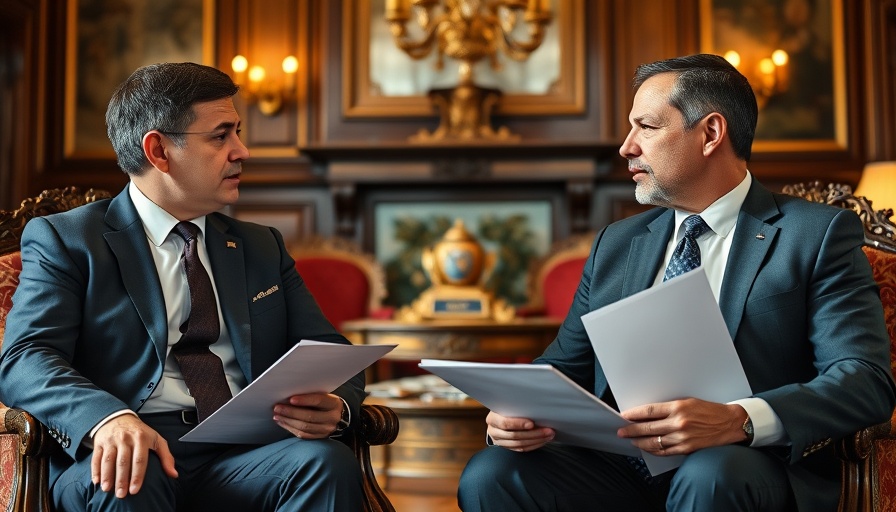
Understanding the Context of Trump's Claims
In a recent Oval Office meeting, former President Donald Trump showcased a photograph as proof of what he claimed to be a genocide of white farmers in South Africa. The context behind this startling declaration stems from ongoing tensions regarding land reform policies in South Africa, which often involve complex historical and racial dynamics. Land dispossession in South Africa dates back to the apartheid era and continues to fuel debates about social equity and historical reparations.
Fact-Checking the Evidence: A Deeper Dive
Upon scrutiny, the image presented by Trump was revealed to have been misrepresented. A thorough fact-check by Reuters established that the image purportedly depicting violence against white farmers was actually a screenshot from a Reuters video filmed earlier in Congo. This revelation underscores the importance of verifying claims, especially when they involve sensitive issues like genocide and violence.
The Reaction from South African Officials
South African President Cyril Ramaphosa responded defiantly to Trump's claims during their confrontation. He firmly stated, “There is no genocide in South Africa,” emphasizing that the government is committed to stabilizing the nation and addressing the past injustices without resorting to violence or discrimination. Ramaphosa’s stance highlights the complexity of dealing with racial tensions while striving towards social cohesion and economic equity in South Africa.
Broader Implications of Misinformation
The incident raises important questions about the role of misinformation in politics. Trump's representation of the photograph not only distorts reality but also serves to rally political bases around sensational claims that may exploit racial fears. In an age where misinformation spreads easily through digital platforms, it's crucial for individuals and leaders alike to approach issues using verified facts and nuanced understanding.
Understanding White Genocide Claims
Debates surrounding the concept of a white genocide have been prevalent in various contexts, particularly focusing on the experiences of white farmers in South Africa. However, researchers argue that claims of genocide must be grounded in rigorous evidence and proper definitions of genocidal acts as outlined in the Geneva Conventions. Such rhetoric can be contentious, often leading to further division rather than constructive dialogue.
Exploring Land Reformation Policies
Land reform is a sensitive issue in South Africa, intertwined with the legacies of colonialism and apartheid. The policies surrounding land redistribution aim to address historical inequities but are often met with resistance and fear. Understanding this context helps demystify the tensions underlying claims of genocide and violence. Socio-economic stability is critical for the progress of any nation, and these policies are a step towards rectifying historical wrongs.
Engaging with International Perspectives
International perspectives on South Africa’s land reform policies vary widely. Some view them as necessary steps toward justice and reconciliation, while others see them through a lens of fear and potential conflict. Each viewpoint offers unique insights into how global narratives shape local realities, serving as a reminder of the importance of informed dialogue in policy-making.
Moving Forward: The Need for Dialogue
As South Africa continues to navigate its complex socio-political landscape, the emphasis must lie on dialogue, understanding, and collaborative solutions. Engaging in conversations that respect diverse perspectives while striving for truth can foster a healthier discourse necessary for national healing. Furthermore, leaders must step forward with responsibility in disseminating information, particularly regarding issues as critical as land reform and violence.
Conclusion: The Call for Responsible Media Engagement
In an era of rapid information exchange, it is imperative for both media and political leaders to promote factual accuracy over sensationalism. Critical thinking and responsible journalism not only uphold democratic values but also contribute to social stability. As consumers of news, we must demand integrity in reporting and challenge narratives that seek to divide rather than unite.
 Add Row
Add Row  Add
Add 




Write A Comment